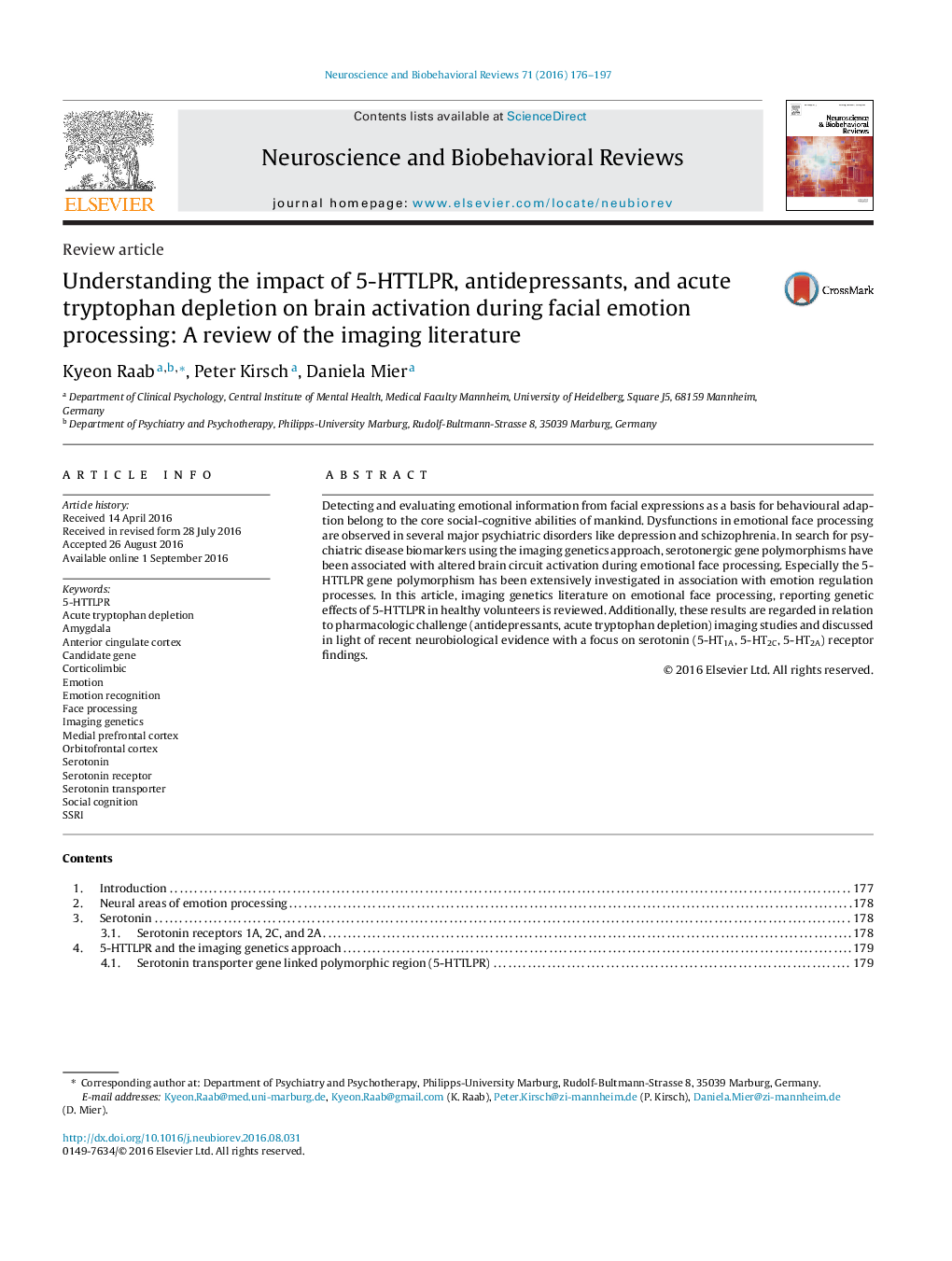| Article ID | Journal | Published Year | Pages | File Type |
|---|---|---|---|---|
| 5043741 | Neuroscience & Biobehavioral Reviews | 2016 | 22 Pages |
â¢We review imaging genetics studies on 5-HTTLPR, serotonin-reuptake inhibiting antidepressant and acute tryptophan depletion effects on facial emotion processing.â¢Imaging genetics studies suggest 5-HTTLPR having an allelic effect on corticolimbic signaling during facial emotion processing.â¢We compare these imaging genetics findings with results from pharmacologic challenge neuroimaging studies on facial emotion processing.â¢Imaging genetics and challenge studies do not reveal a homogeneous pattern.â¢Differences between imaging genetics and challenge studies have to be related to specific serotonergic receptor variations.
Detecting and evaluating emotional information from facial expressions as a basis for behavioural adaption belong to the core social-cognitive abilities of mankind. Dysfunctions in emotional face processing are observed in several major psychiatric disorders like depression and schizophrenia. In search for psychiatric disease biomarkers using the imaging genetics approach, serotonergic gene polymorphisms have been associated with altered brain circuit activation during emotional face processing. Especially the 5-HTTLPR gene polymorphism has been extensively investigated in association with emotion regulation processes. In this article, imaging genetics literature on emotional face processing, reporting genetic effects of 5-HTTLPR in healthy volunteers is reviewed. Additionally, these results are regarded in relation to pharmacologic challenge (antidepressants, acute tryptophan depletion) imaging studies and discussed in light of recent neurobiological evidence with a focus on serotonin (5-HT1A, 5-HT2C, 5-HT2A) receptor findings.
